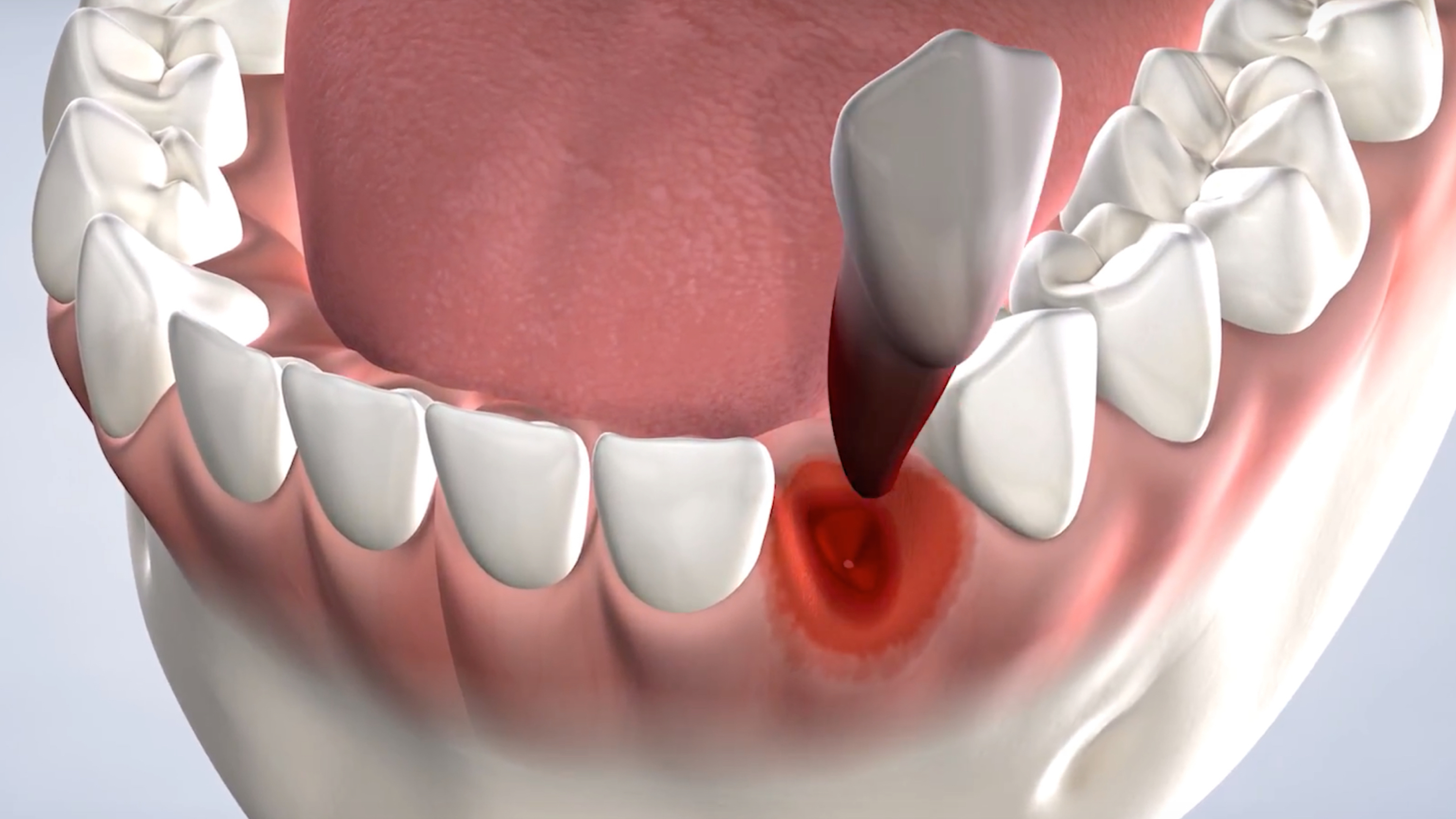Post-Operative Instructions: Multiple Extractions
BackBleeding
A certain amount of bleeding is to be expected following surgery. Slight bleeding, oozing, or redness in the saliva is not uncommon. Excessive bleeding may be controlled by first rinsing or wiping any old clots from your mouth, then placing a gauze pad over the area and biting firmly for thirty minutes. Repeat if necessary. If bleeding continues, bite on a moistened tea bag for thirty minutes. The tannic acid in the tea bag helps to form a clot by contracting bleeding vessels. To minimize further bleeding, do not become excited, sit upright, and avoid exercise.
Do not remove immediate denture unless the bleeding is severe. Expect some oozing around the side of the denture. If bleeding does not subside, call for further instructions.
Swelling
The swelling that is normally expected is usually proportional to the surgery involved. Swelling around the mouth, cheeks, eyes and sides of the face is not uncommon. This is the body’s normal reaction to surgery and eventual repair. The swelling will not become apparent until the day following surgery and will not reach its maximum until 2–3 days post-operatively. However, the swelling may be minimized by the immediate use of ice packs. The ice packs should be left on 20 minutes on and 20 minutes off while you are awake. After 36 hours, ice has no beneficial effect. If swelling or jaw stiffness has persisted for several days, there is no cause for alarm. This is a normal reaction to surgery. 36 hours following surgery, the application of moist heat to the sides of the face is beneficial in reducing the size of the swelling.
Pain
You should begin taking pain medication before the local anesthetic wears off. Ibuprofen (Motrin®, Advil®) 600 mg (3 regular strength over-the-counter tabs), take every 6 hours around the clock for the first 3 days, then every 6 hours as needed after that. Acetaminophen (Tylenol®) 975 mg (3 regular strength over-the-counter tabs), take every 8 hours around the clock for 3 days, then every 8 hours as needed after that. Note: You may take ibuprofen and acetaminophen together at the same time, or you may alternate them so that you are taking medication every 3 -4 hours.
You may be prescribed a narcotic pain medication. If you are prescribed a narcotic, you may take this with the ibuprofen and acetaminophen. Narcotic pain medications can make you nauseous and drowsy. Therefore, do not drink alcohol, drive a car, or operate machinery while taking narcotic pain medication.
Do not take any of the above medication if you are allergic, or have been instructed by your doctor not to take it.
Pain or discomfort following surgery should subside more and more every day after the third or fourth day. If pain persists, it may require attention, and you should call the office.
Drink plenty of fluids. If many teeth have been extracted, the blood lost at this time needs to be replaced. Drink at least 6 glasses of liquid the first day.
Do not rinse your mouth for the first post-operative day, or while there is bleeding. After the first day, use a warm salt water rinse every 4 hours and following meals to flush out particles of food and debris that may lodge in the operated area. (½ teaspoon of salt in a glass of
lukewarm water.). After you have seen your dentist for denture adjustment, take out denture and rinse 3 to 4 times a day.
Restrict your diet to liquids and soft foods, which are comfortable for you to eat. As the wounds heal, you will be able to advance your diet.
The removal of many teeth at one time is quite different from the extraction of one or two teeth. Because the bone must be shaped and smoothed prior to the insertion of a denture, the following conditions may occur, all of which are considered normal:
- The area operated on will swell, reaching a maximum in 2 days.
- Swelling and discoloration around the eye may occur.
- A sore throat may develop.
- The muscles of the throat are near the extraction sites.
- Swelling into the throat muscles can cause pain. This is normal and should subside in 2–3 days.
- If the corners of the mouth are stretched, they may dry out and crack. Your lips should be kept moist with an ointment like Vaseline®.
- There may be a slight elevation of temperature for 24–48 hours. If elevated temperature continues, notify our office.
- If immediate dentures have been inserted, sore spots may develop. In most cases, your dentist will see you within 24-48 hours after surgery and make the necessary adjustments to relieve those sore spots. Failure to do so may result in severe denture sores, which may prolong the healing process.

